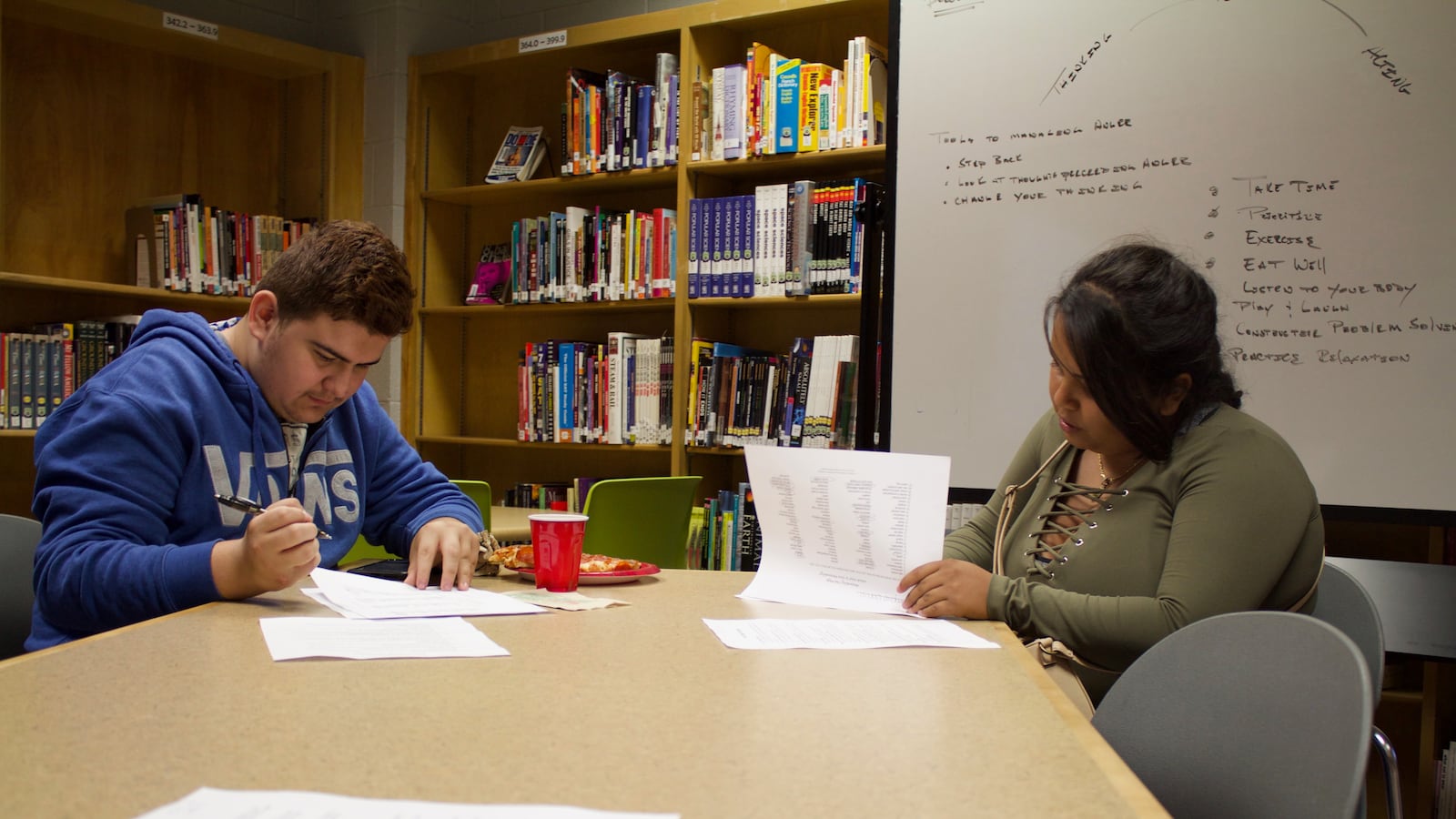On a recent evening, a dozen 2017 graduates of Edgewater’s Jefferson Junior-Senior High School were back at their alma mater, split into small groups at tables in the school library.
Community volunteers walked through a “pre-college checklist” with tips about paying tuition online, buying books and getting a student number. Most had already done all of those things.
There was even a personality test — designed to help the students get in touch with the traits that could help or hurt their chances of college success.
This mentorship program, in its first year, is designed to address a problem that often flies under the radar in the discussion about increasing college access: nationally, 40 percent of low-income students who have been accepted to college don’t show up to the first day, studies show.
Many Jefferson students will be the first in their families to attend college, said Joel Newton, founder of the local nonprofit Edgewater Collective, which is running the mentorship program. Their parents might not have had any exposure to the process before, he said, rendering them easily overwhelmed by the sheer number of steps necessary to enroll at school.
“We have a high number of students that leave saying they’re going to college and a low number that actually go,” said Nathan Chamberlain, a counselor at Jefferson.
The program began in the fall and picked up again in June with a week of sessions including college visits, placement test preparation and other resources to help Jefferson’s college-bound seniors.
Edgewater Collective has held monthly mentoring sessions since, inviting community members and school staff to help students with tasks such as getting ID cards and registering for classes.
“The big thing we’ve noticed this summer in just kind of walking alongside students through this process is that a number of the roadblocks that pop up would be hard if we weren’t walking alongside them,” Newton said.
In the program’s first year, Newton said about half of Jefferson’s college-bound seniors participated. He said he hopes to expand the program to include not only more students continuing their academic careers, but also provide career readiness training.
“We did a lot of this on the fly,” said Chamberlain, the school counselor, adding that the organization will start the sessions earlier in the future. “It was easier for kids to fall through the cracks, and we didn’t have a chance to follow up with some.”
Newton said community members and local organizations such as Red Rocks Community College and Goodwill Industries loaned time and resources to the program’s pilot year. That included support to fund scholarships. About 80 percent of the college-bound graduates have scholarships, Newton said.
Additionally, Edgewater Collective teamed up with the nonprofit PCs for People to provide new computers to program participants who attend 80 percent or more of their first three weeks of classes.
“Incentives are great but more than just the incentives, we’re overdoing these first two years because we’re trying to create a culture,” Chamberlain said. “When you talk about a first generation school like ours, college isn’t the buzz … We’ve put incentives in place to have a mob mentality, in a positive way, of ‘everyone’s doing this, so I should do it too.’”

